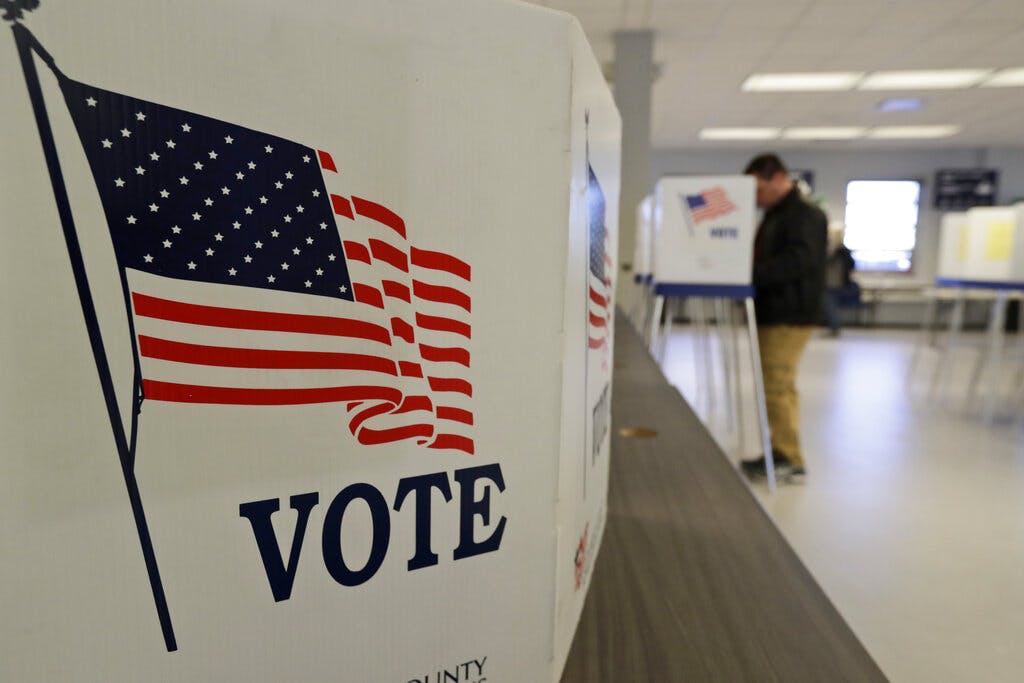Backing ‘Weak’ Candidates in GOP Primaries is a Risky Strategy for Democrats
Meddling in the other party’s primary elections offers a shortcut too tempting to resist, but it has a way of backfiring.

In several 2022 primaries, Democrats have boosted Republican candidates that they tarred as “far right” and unelectable, a strategy that carries risks for the party and the public.
Meddling in the other party’s elections offers a shortcut too tempting to resist in a year that Democrats would rather not have to put their record — or President Biden’s — before the voters.
Speaking on Fox News on Sunday, though, Lanny Davis, former special counsel to President Clinton, joined Republican operative Dallas Woodhouse in warning how the underhanded strategy could “backfire.”
Take the billionaire Democratic governor of Illinois, J.B. Pritzker, who threw his weight behind Republican Darren Bailey and effectively squashed the more centrist Richard Irvin.
Mr. Irvin said in his concession speech that “J.B. Pritzker won the Republican primary.” That the Democrat spent $35 million to keep Mr. Irvin, an African American, off the ballot could also provoke a backlash.
The Chicago Sun-Times reports that “voters will have to choose between Pritzker and an opponent Pritzker helped win. That doesn’t feel right, and it shouldn’t.”
Even if the governor doesn’t get beached by the looming red wave, a win could haunt him in 2024. If — as WBEZ Chicago speculated on Friday — he runs for president, he’ll be open to attacks from Democrats that he fixed the race and isn’t battle tested.
In Colorado’s GOP Senate primary, a Democratic group put its finger on the scale, too, spending nearly $4 million to boost a state representative only to end up with CEO Joe O’Dea.
“Mr. O’Dea now figures to give Colorado Democrats what they feared,” the New York Times reported, “a competitive general-election contest against Senator Michael Bennet.” Control of the upper chamber of Congress could hinge on the outcome of the race.
In California’s 20th and 22nd congressional districts, Democrats bought ads boosting pro-Trump candidates over GOP incumbents. The incumbents won renomination and can now proclaim that Democrats fear them.
Democratic resources helped get the MAGA candidate in the Pennsylvania governor’s race, Doug Mastriano, over the hump, but it only moved the race from “toss up” to “leans Democrat” in the Cook Political Report.
Finagling to get the political equivalent of a bye-week seems tempting, but judging candidate strength is tricky, and sometimes results in disastrous consequences for your party’s agenda.
In 1932, Republican President Hoover eyed the Democratic bench and hoped the party would nominate the intellectual lightweight, a man who had risen to New York’s governorship based on his family name — Roosevelt, as in Franklin.
Presidential historian David Pietrusza, author of the upcoming Roosevelt Sweeps Nation: FDR’s 1936 Landslide and the Triumph of the Liberal Ideal, says Mr. Hoover “believed that FDR would be the weakest candidate to run against.
Mr. Hoover “thought the strongest would be Newton D. Baker,” President Wilson’s secretary of war and the former mayor of Cleveland. With Americans struggling in the Great Depression, FDR rode anti-Republican sentiment into office.
He implemented the New Deal and removed America from the Gold Standard — policies the free-market Mr. Hoover detested for prolonging the country’s pain. Republicans wouldn’t return to the White House again for 20 years.
In 1980, Democrats considered Ronald Reagan, the Republican governor of California, preferable to a comeback by President Ford or the long resume of George H. W. Bush. Mr. Reagan won and set back liberalism for a generation.
In recent years, “electable” has become a political death sentence. The label was bestowed on both Senator Kerry, a Democrat, in 2004 and Florida’s Republican governor, Jeb Bush, in 2016. Neither ended up hearing Hail to the Chief play when they entered a room.
The most striking example of the strategy backfiring occurred in 2016 when Democrats salivated over Donald Trump, believing his nomination would deliver Secretary Clinton a cakewalk.
But a funny thing happened on the way to smashing the glass ceiling. The would-be first female president lost in an Electoral College landslide, and Democrats haven’t stopped lamenting all the dreams Mr. Trump turned into nightmares.
As the New York Times put it, “Democratic meddling in GOP primaries produces results — sometimes.” Other times, candidates end up sorry they didn’t do the hard work of making their case to voters, who have a funny way of deciding for themselves who’s electable and who’s not.

